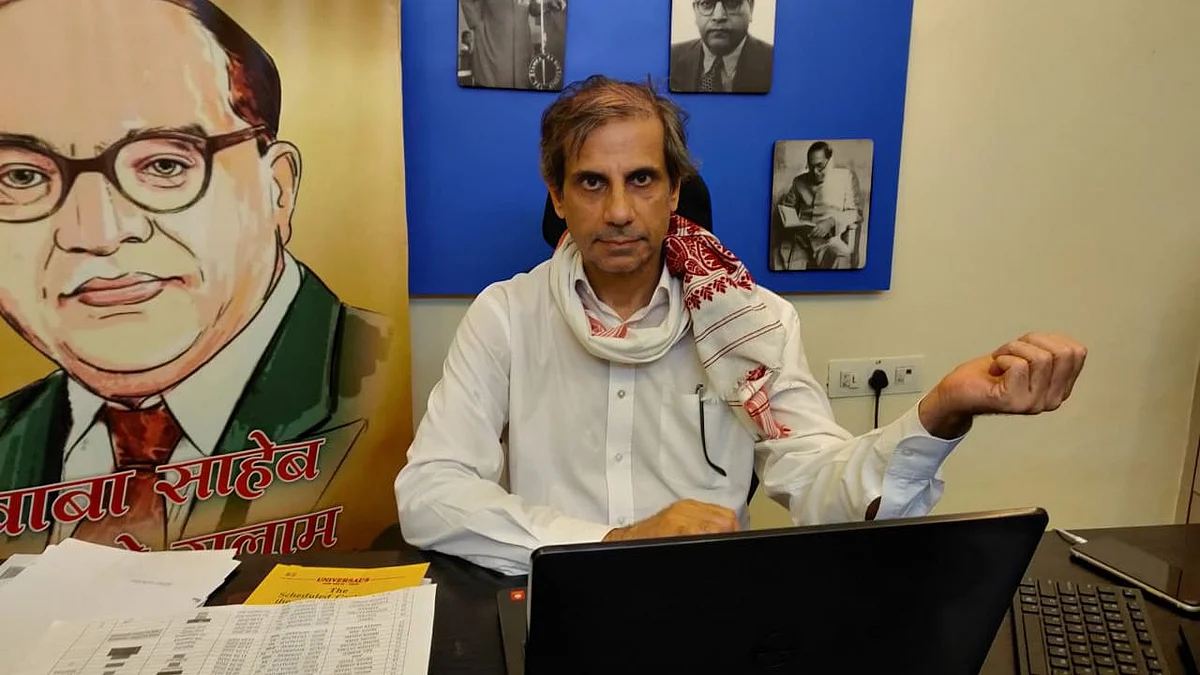‘Let Search Warrant be Executed’: Court Disposes Pracha’s Plea
The police are allowed to seize his computer in ‘accordance with law and subject to safeguards of expert opinion.’

advertisement
Calling the objections raised by Delhi-based lawyer Mehmood Pracha ‘baseless’, Delhi’s Patiala House Court allowed Delhi Police to execute the search warrant issued against him on 25 March.
The search warrant had been issued on 4 March, Pracha had approached the court on 9 March after ‘about 100 police officials came to his office to seize his computer.’ The court had placed a stay on the warrant as long as the matter was being heard. With the court disposing of the plea on 25 March, the 4 March search warrant has become operational again. This means the police are allowed to seize his computer, in a manner, as the order details, that is in ‘accordance with law and subject to the safeguards as per expert opinion.’
The search warrant states, “This is to authorise and require the investigating officer of this case to search and seize the computer having primary evidence/document which was identified on the previous search which is present at the office premises of Mr Mehmood Pracha.”
IO Submits Expert Opinion, Says ‘Target Data’ Can be Taken Without Creating Evidential Vulnerabilities
The reply filed by the IO addresses Pracha’s concerns protection of the data of his clients.
According to this expert opinion, “target data”, that the police are after, can be retrieved without interfering with other data in the system. For this, the computer system/hard disk will be submitted in FSL for examination purposes with full details of the required target data, which includes the file name, file path, location, etc. All this, according to expert opinion, can be done without creating any evidential vulnerabilities as the data will be retrieved forensically.
Court Says, Accused Can Not Dictate How Evidence Will be Collected
In the application moved by Pracha on 9 March, he had given his consent to furnish data through pendrive or through the production of the computer.
The court says that it cannot interfere when IO feels that the target data must be taken from the source, nor can the accused dictate how evidence is to be collected if it’s established that other data will be protected.
Referring to Section 126 of Indian Evidence Ac and Bar Council Conduct Rules, the court says the reference is misplaced as the same envisages the voluntary sharing of data by the attorney or deposing against the client.
The court order that this situation is different. “In this matter, the data to be collected by the police is on account of investigation in a criminal case. The plea of non-sharing of data of other clients is there, the court order states, ‘beyond the scope of Section 126 of Indian Evidence Act’.
What is This Case About?
The victim is called Irshad Ali, who was allegedly made to depose falsely in front of the court. “These findings were supported by the witnesses of this case who had recorded their testimonies under Section 164 of CrPC before the concerned Hon’ble Courts,” the report read.
Ali, whose shop was allegedly burnt and looted during the northeast Delhi riots, told the court that he could not identify the accused named in his complaint as he did not know who the people were. This happened in August 2020, after which the additional sessions judge Vinod Yadav directed the police to investigate the allegations, pass appropriate directions, and requested the Delhi Commissioner of Police to look into the matter.
In the police report from August 2020, the police had explained that, "During the investigation, he (Ali) was enquired about the names of Deepak, Navneet, and Mintu, as mentioned in his complaint. He said that he knows them by their names and does not know anything about them personally. He also stated that he does not identify the accused persons in the video."
PTI reported how the police report included Ali’s brother, Dilshad's statement as well. Dilshad had said they both were home when they got the call about the shop being looted and hence had not seen anyone looting their shop, contrary to the complaint submitted in his brother’s name.
(At The Quint, we question everything. Play an active role in shaping our journalism by becoming a member today.)